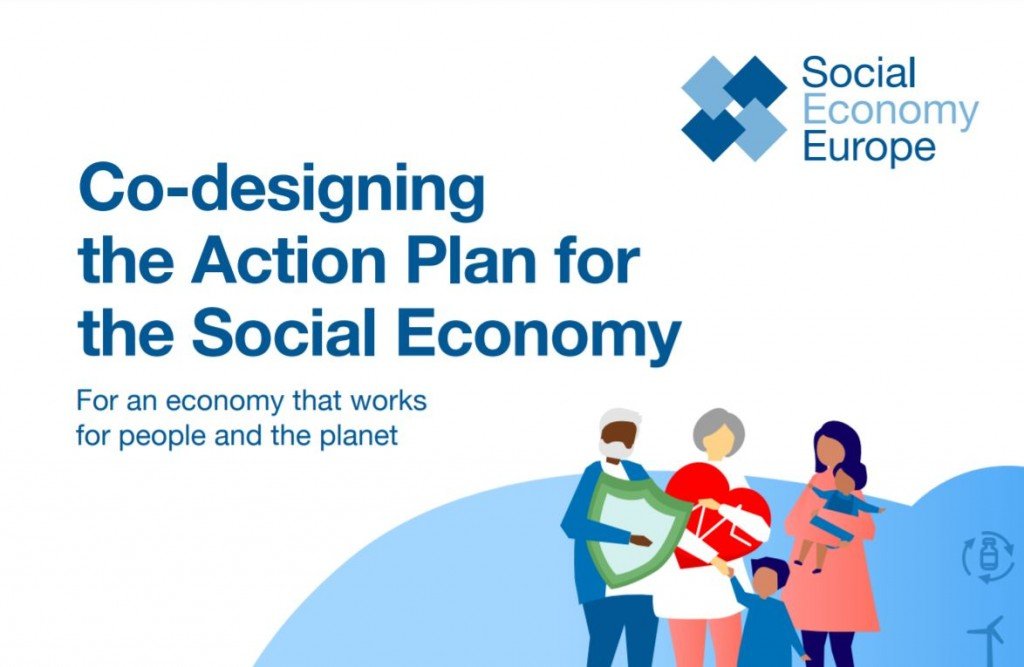Social Economy Europe is a platform representing the voices of 2.8 million social economy enterprises and organisations in Europe. is pleased to present its policy paper Co-designing the Action Plan for the Social Economy: for an economy that works for people and the planet.
This document has been elaborated by SEE in cooperation with its seventeen members -AIM, AMICE, CASES, CEPES, CECOP, CEDAG, CEPES, ConcertES, the EFC, ENSIE, ESS-France, EMN, Eurodiaconia, FEBEA, Forum Terzo Settore, IPSE and REVES- and four external partners: DIESIS, EURICSE, The Wheel and SOGA Europe.
The policy paper aims to feed the debates and consultations that will lead to the release of the European Action Plan for the Social Economy in the fourth trimester of 2021.
The paper actually comes at time in which the European Commission has launched a roadmap (EU word for short consultation) to collect the inputs and proposals of all social economy networks, stakeholders, public authorities etc. This consultation will be open until the 26 April 2021.
SEE calls on all its members and the wider social economy community to actively participate in this consultation here and shape the future of EU policies for the Social Economy.

With this policy paper, Social Economy Europe pursues three main objectives:
–Mobilise social economy’s potential to contribute to the social, economic and environmental objectives of the EU, as well to a sustainable recovery by boosting entrepreneurship and the creation of quality jobs.
–Promote the convergence and coordination of the different public authorities involved in the promotion of the social economy (EU, national, regional and local levels) by defining strategic objectives, key targets, and benchmarks at EU level.
–Foster a conducive ecosystem for the growth of the social economy in Europe, improving its contribution to key EU objectives and allowing social economy enterprises to take full advantage of the Single Market, EU funds and financial instruments.
The paper also contains 7 priority areas for EU action (see image above) and 51 concrete proposals, as well as an analysis on the added value of social economy to build back better and contribute to the green and digital transitions and to the implementation of the European Pillar of Social Rights; and a background on the history of EU policies for the social economy since the recognition of cooperatives in the Treaty of Rome (1957) and the 1989 EC Communication on Businesses in the Economie Sociale sector until our days.
SEE President Juan Antonio Pedreño declared: This is the begining of a new era of EU policies for the social economy. This a key year to define the collective future of the social economy and make sure that we build back better. I have no doubt, there is light at the end of the tunnel. We have new opportunities with the Action Plan, the Next Generation EU and the new MFF. In this context, cooperation and coordination is needed to achieve our common objectives. We are and have always been stronger together.
This publication has been prepared within SENBS project No. 2020- 1-EE01-KA204-077999. The content of this publication is the sole responsibility of the project coordinator and may not always reflect the views of the European Commission or the National Agency.
















I am so grateful for your post.Much thanks again. Will read on…